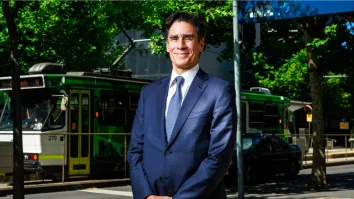
Vietnam’s two-year fintech sandbox takes shape
The trial, which will take effect on 1 July, is a step in the right direction.
Vietnam’s regulatory testing ground for digital lending, credit scoring and data sharing is expected to spawn innovative financial products that could improve traditional banking operations, analysts said.
“It used to be that the financial service sector [in Vietnam] was a very tightly controlled and tightly regulated sector,” Andy Tran, chief financial officer at Zalopay, told the Asian Banking & Finance and Insurance Asia Summit on 13 May 2025. “But we’re seeing more evolution in the mindset of regulators.”
Vietnam on 29 April launched a two-year sandbox for fintech solutions that will focus on scoring tools to improve credit access for the underbanked, secure and standardised data sharing between banks and vendors, and peer-to-peer lending platforms.
Under the setup that will take effect on 1 July, fintech companies can test their products and services under a controlled environment and relaxed regulation by Vietnam’s central bank. Foreign financial institutions are excluded.
Whilst the sandbox won’t directly affect traditional banks, it is a step in the right direction, Khanh Ngo, CEO at Liobank, a digital bank in Vietnam operated by Orient Commercial Joint Stock Bank, told the forum.
“There’s definitely more work that can be done by regulators,” he said. “We need transparency and broader access to banking services.”
For starters, Vietnam should consider issuing dedicated digital bank licenses, Ngo said.
Unlike their Southeast Asian peers, digital banks in Vietnam operate under the same license as traditional banks, meaning they have to partner with traditional banks and rely on them for capital.
In contrast, the Philippine central bank allowed standalone digital banking licenses as early as 2020, and on 1 January opened the application for four more players on top of the existing six. The Bank of Thailand, meanwhile, submitted three successful initial applicants for virtual bank licenses to the Ministry of Finance in April.
“Moving in that direction would be a very welcome signal for digital banks like us,” Ngo said. “What we’ve seen in the Philippines is that some digital banks there have already reached the scale of incumbent retail banks that have been around for decades—even a hundred years.”
“And that’s something we’d love to see happen here too,” he added.
Ngo said Liobank has its own proprietary credit scoring model to assess borrowers. Instead of past credit data, they use app behavior to predict creditworthiness.
“There's a whole portion of the population that has very limited or no credit history. How do you give those people access to credit?” he asked.
“How do you score a villager in Lao Cai versus a young professional earning $577.71 (VND15m) a month in District 1 [in Ho Chi Minh City]? Traditional methods can’t solve that,” he added.



















 Advertise
Advertise











